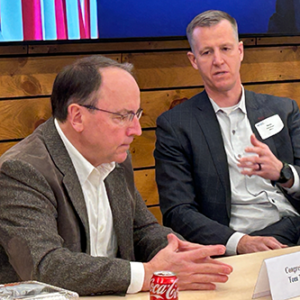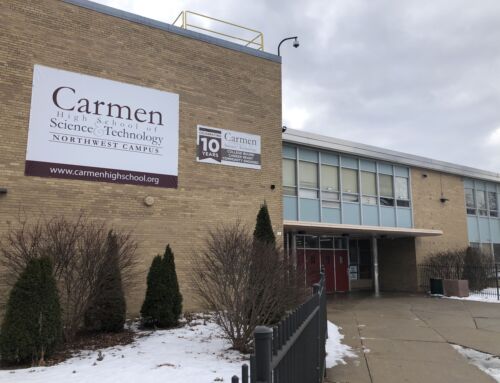 Providing MMAC members time with and access to legislators at all levels of government is important. Decisions are being made locally, in Madison and in Washington D.C. that impact our collective success.
Providing MMAC members time with and access to legislators at all levels of government is important. Decisions are being made locally, in Madison and in Washington D.C. that impact our collective success.On Monday, a number of area business leaders sat down for lunch with Rep. Tom Tiffany of the state’s 7th Congressional District in the MMAC offices. The congressman provided insight on several different topics relevant to the success of their businesses and, more importantly, listened to MMAC members’ concerns relating to federal policy.
“Policy makers are heavily influenced by their relationships and interactions that are the result of relationships,” said MMAC President Dale Kooyenga, explaining the motivation for the lunch event. “… This type of interaction creates relationships with our elected officials, promotes honest dialogue and ensures the voices of our more than 2,000 plus members are being represented”Tiffany prefaced a Q&A by hitting on issues he thinks pose the biggest challenges to the U.S.
Rep. Tiffany on the federal deficit: “That’s a great motivating factor for me out in Washington D.C. When you see $34 trillion in debt, we’re just really headed in the wrong direction. We need to fix that. It’s led to the inflation. It’s led to a lot of the problems that we have.”
Rep. Tiffany on energy independence: “If you look at the history of America, from the time that we found oil in this country, when we have affordable energy, we are prosperous country. … We really don’t have affordable energy at this point in America. We need to fix that if we’re going to be prosperous.”
Rep. Tiffany on Immigration: “I strongly believe at this point you need to secure the border and then you set up a new immigration system that works for America, that works for employers, that works to benefit our country for the future much like it has over 200-plus years.”
Kooyenga, citing recent wins at the state level when it comes to providing per-pupil spending equity for K-12 students at choice and charter schools, asked Tiffany his thoughts on shifting federal money to students instead of the kind of schools they attend.
“What needs to be reduced is the barriers,” Tiffany said. “… Provided that you are a legitimate school, whether private, charter, public, that you have access to those funds.”




